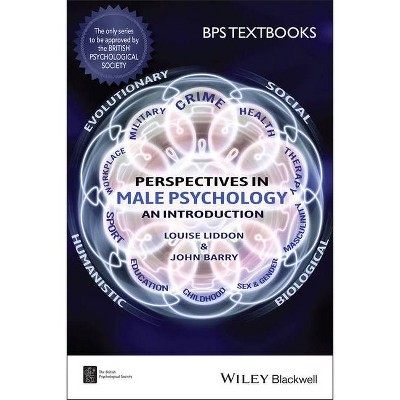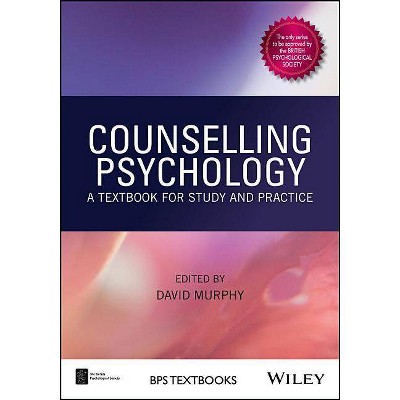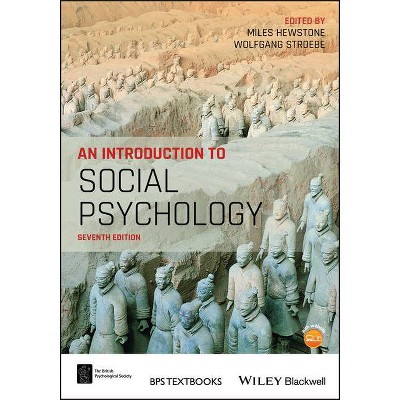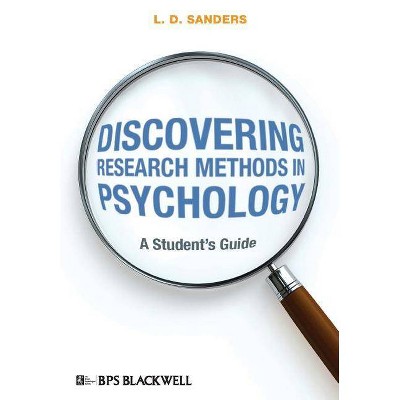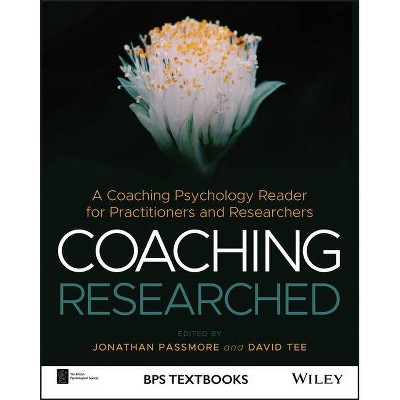An Introduction to Emotional Intelligence - (BPS Textbooks in Psychology) by Lorraine Dacre Pool & Pamela Qualter (Paperback)
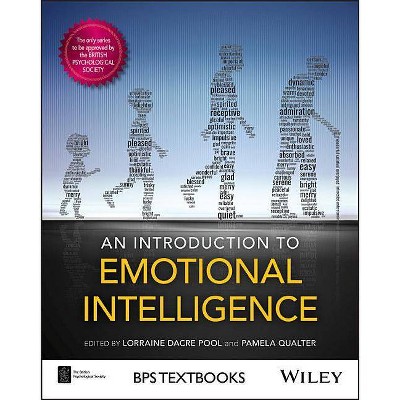
Similar Products
Products of same category from the store
AllProduct info
<p/><br></br><p><b> Book Synopsis </b></p></br></br><p><b>Bridges the gap between the scholarly literature and "pop-psych" books on EI</b></p> <p>Emotional Intelligence (EI) has become a topic of vast and growing interest worldwide and is concerned with the ways in which we perceive, identify, understand, and manage emotions. It is an aspect of individual difference that can impact a number of important outcomes throughout a person's lifespan. Yet, until now there were no authoritative books that bridge the gap between scholarly articles on the subject, often published in obscure professional journals, and the kind of books found in the "pop-psych" sections of most large bookstores. This book fills that gap, addressing the key issues from birth through to old age, including the impact of EI on child development, social relationships, the workplace, and health. It is a useful introduction to the academic study of EI, including its history as a concept. Featuring contributions by an international team of EI researchers, this thought provoking and informative book offers students, educators, mental health professionals, and general readers a comprehensive, critical, and accessible introduction to state-of-the-art EI theory and research.</p> <p>From the historical origins of EI to its contemporary applications across an array of domains, <i>An Introduction to Emotional Intelligence</i> explores what the research evidence tells us about it, why it is important, and how it is measured. Throughout each chapter any potentially tricky words or concepts are highlighted and explained. And, most chapters feature activities to spur further reflection on the subject matter covered as well as ideas on how to apply aspects of EI to various questions or problems arising in the readers' lives.</p> <ul> <li>Features contributions from expert authors from around the world with experience of researching and teaching EI theory and practice</li> <li>Makes EI concepts, foundations, research, and theory accessible to a wider audience of readers than ever before</li> <li>Explores EI's roots in psychological thinking dating back to early 20<sup>th</sup> century and considers the reasons for its widespread popularity in contemporary times</li> <li>Reviews the latest research into the constructs of ability EI and trait EI and their validity in relation to health, wellbeing, social relationships, academic, and work performance</li> </ul> <p><i>An Introduction to Emotional Intelligence </i>is fascinating and informative reading and a source of practical insight for students of psychology, management and leadership, education, social work and healthcare, and those working in education, health settings and in psychological counseling professions. </p><p/><br></br><p><b> From the Back Cover </b></p></br></br><p><b>Bridges the gap between the scholarly literature and "pop-psych" books on EI</b> <p>Emotional Intelligence (EI) has become a topic of vast and growing interest worldwide and is concerned with the ways in which we perceive, identify, understand, and manage emotions. It is an aspect of individual difference that can impact a number of important outcomes throughout a person's lifespan. Yet, until now there were no authoritative books that bridge the gap between scholarly articles on the subject, often published in obscure professional journals, and the kind of books found in the "pop-psych" sections of most large bookstores. This book fills that gap, addressing the key issues from birth through to old age, including the impact of EI on child development, social relationships, the workplace, and health. It is a useful introduction to the academic study of EI, including its history as a concept. Featuring contributions by an international team of EI researchers, this thought provoking and informative book offers students, educators, mental health professionals, and general readers a comprehensive, critical, and accessible introduction to state-of-the-art EI theory and research. <p>From the historical origins of EI to its contemporary applications across an array of domains, An Introduction to Emotional Intelligence explores what the research evidence tells us about it, why it is important, and how it is measured. Throughout each chapter any potentially tricky words or concepts are highlighted and explained. And, most chapters feature activities to spur further reflection on the subject matter covered as well as ideas on how to apply aspects of EI to various questions or problems arising in the readers' lives. <ul> <li> Features contributions from expert authors from around the world with experience of researching and teaching EI theory and practice</li> <li> Makes EI concepts, foundations, research, and theory accessible to a wider audience of readers than ever before</li> <li> Explores EI's roots in psychological thinking dating back to early 20<sup>th</sup> century and considers the reasons for its widespread popularity in contemporary times</li> <li> Reviews the latest research into the constructs of ability EI and trait EI and their validity in relation to health, wellbeing, social relationships, academic, and work performance</li> </ul> <p>An Introduction to Emotional Intelligence is fascinating and informative reading and a source of practical insight for students of psychology, management and leadership, education, social work and healthcare, and those working in education, health settings and in psychological counseling professions.<p/><br></br><p><b> About the Author </b></p></br></br><p><b>DR. LORRAINE DACRE POOL</b> is a Chartered Psychologist and Principal Lecturer at the Centre for Excellence in Learning and Teaching, the University of Central Lancashire, Preston, UK. She has a BA in Social Psychology, an MSc in Occupational/Organisational Psychology, and a PhD in Emotional Intelligence and Graduate Employability. <p><b>PAMELA QUALTER, PhD</b> is Professor of Psychology for Education at Manchester Institute of Education, The University of Manchester, Manchester, UK. She is one of the UK's leading experts in the field of child/adolescent loneliness and is an important researcher of social and emotional skills within education.
Price History
Price Archive shows prices from various stores, lets you see history and find the cheapest. There is no actual sale on the website. For all support, inquiry and suggestion messagescommunication@pricearchive.us
